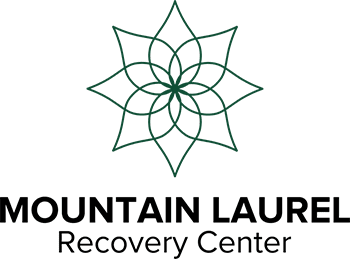The way the media portrays addiction has led many people to struggle to accurately identify the risk associated with a particular behavior. While the addictive nature of illegal street drugs is discussed fairly regularly, your medicine cabinet likely contains dangers you haven’t fully considered.
Cough syrup with codeine is commonly prescribed when you have a cough that won’t seem to go away and is interfering with your ability to sleep. It may seem harmless at first glance, but codeine has a potential for abuse and addiction that is often overlooked.
- Codeine Is an Opiate
Codeine is used in prescription-strength cough syrup to suppress the signals in the brain that trigger a cough reflex. It’s typically taken every four to six hours until a person has recovered from their respiratory infection.
Even though it’s less regulated than oxycodone, hydrocodone, or morphine, codeine is very similar chemically. It causes feelings of euphoria, relaxation, and drowsiness that increase with higher dosages. When the drug is taken regularly, users can experience withdrawal symptoms such as irritability, anxiety, muscle aches, loss of appetite, diarrhea, trouble sleeping, and increased sweating.
- Codeine Cough Syrup Often Has Multiple Ingredients
Prescription-strength cough syrup may have more than one active ingredient. For example, it’s common for a cough syrup containing codeine to also include the cough suppressant dextromethorphan or the antihistamine promethazine. If someone is using the cough syrup to get high, these additional ingredients increase the risk of adverse effects. At high enough doses, it’s also possible for dextromethorphan to cause hallucinogenic effects that are similar to PCP and ketamine.
- Codeine Can Cause Adverse Drug Interactions
In addition to not being recommended for people under 18, those with asthma, or pregnant women, codeine-based cough syrup can interact with many different medications. Taking codeine with the stimulants used to treat ADHD or antidepressants is particularly dangerous. This behavior can lead to serotonin syndrome. Also known as serotonin toxicity, this condition causes high serotonin levels to accumulate in the body and leads to symptoms such as confusion, loss of coordination, agitation, seizures, and high fever. Serotonin syndrome can be fatal if left untreated.
- Pre-Teens, Teens, and Young Adults Are Most at Risk
Addiction affects people of all ages, but there is ample evidence to suggest that junior high, high school, and college students are most likely to abuse cough syrup with codeine. Some are unaware of the potential danger associated with their behavior, while others are influenced by peer pressure and a desire to temporarily escape from the stresses of everyday life.
Mixing codeine-based cough syrup with soda or juice to improve the taste, then adding Jolly Ranchers or other similarly flavored hard candies is a common behavior among young people who plan to take the cough syrup at very high doses. This concoction is often called purple drank, lean, syrup, or sizzurp.
At parties, combining codeine with alcohol is also common. Since alcohol and codeine are both depressant drugs that will slow the brain’s messages to the rest of the body, this combination will increase the risk of a potentially fatal overdose.
- Codeine Can Be a Gateway Drug
The gateway drug hypothesis states that experimenting with certain addictive substances can increase the risk that an individual will go on to abuse other substances. Although the gateway hypothesis isn’t without its critics, ample anecdotal evidence shows abuse of codeine has led many individuals to seek out stronger opioids or to increase their alcohol consumption. This can be due to peer pressure, simple curiosity, or the desire to seek a stronger high after a tolerance to codeine has developed.
- Proactive Addiction Treatment Is Essential
Whenever there is evidence to suggest that a person has a substance abuse problem, it’s important to seek immediate addiction treatment. Substance use disorders are considered chronic illnesses and are easiest to treat in the initial stages. Waiting for a “rock bottom” crisis moment to occur only creates additional challenges that must be overcome.
Mountain Laurel Recovery Center provides short- and long-term inpatient residential treatment programs for men and women ages 18 and up at a 36-bed facility in Westfield, Pennsylvania. Our program is personalized to fit individual needs and focuses on helping clients develop the skills they need to build a sober future through counseling, 12-step support, and holistic treatments that promote the development of a wellness-focused lifestyle.
